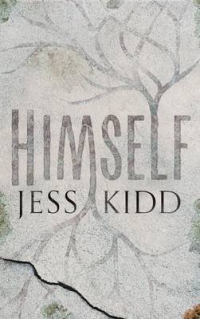Himself by Jess Kidd
 Monday, April 3, 2017 at 8:30AM
Monday, April 3, 2017 at 8:30AM 
First published in Great Britain in 2016; published by Atria Books on March 14, 2017
I’m a sucker for novels by Irish writers who populate small Irish villages with eccentric residents. Himself is sort of a murder mystery, but Jess Kidd’s delightful prose and quirky characters, some of whom are dead, set it apart. The plot is engaging but almost beside the point.
The dead take particular note of Mahoney, who as a baby was saved from death by a forest that hid him from his murderous father. That was in Mulderrig, a place Mahoney doesn’t recall, but to which he returns 26 years later, prompted by a letter that was held by the orphanage that raised him, to be passed on to Mahoney after he was grown.
Mahoney’s mother was Orla Sweeney, a name that is still well known in Mulderrig. She might have been a witch, or perhaps was merely mistaken for one. Orla was unjustly regarded as wicked because she passed messages from the dead to the living, and the people of Mulderrig didn’t appreciate the news that the departed revealed. The reader meets Orla in flashbacks.
In the present, Mahoney meets a priest whose face can’t be trusted; a woman who produces plays for the church that the priest considers to be scandalous; a lecherous old man who has his sights set on a widow; the widow he chases, who is anxious for Mahoney to leave the village; a couple of women who are anxious for the handsome Mahoney to stay; a gossipy cat lady; the village police officer; and a variety of ghosts.
Mahoney (like many in the village) assumes that someone did away with his mother. The plot centers on the efforts of Mahoney, assisted by the play producer and opposed by nearly everyone else, as he tries to uncover the truth about Orla’s disappearance. Even a little dead girl warns him away from his quest.
Ireland is a land of folklore, a fact that Irish fiction often reflects. I always like the ghosts in Irish novels. Unlike American ghosts, they tend to be foul-mouthed, gossipy, and quite funny. There are plenty of ghosts in Himself, including a priest who haunts a commode, but most of them are silent. They confine themselves to shaking their heads or drawing their fingers across their throats when they want to communicate. Other supernatural elements include signs and portents for characters to interpret or misinterpret and quarrel about.
Like many modern Irish tales, Himself shines a light on the condition of Ireland, which a scholarly character describes as “a dying civilization, romantic Ireland, the ancient and untarnished imagination of the pure and noble peasant making sense of the harshness and beauty of their life and the landscape.” There is, as that description suggests, a serious undercurrent to Himself, enough to give the novel literary heft, but it doesn’t detract from the novel’s reliance of several forms of humor, including slapstick, farce, burlesque, satire, and parody. The humor is gentle rather than mordant, light rather than dark (despite some gruesome murders).
Himself isn’t really a murder mystery, given that the reader learns at least some of the truth long before Mahoney. But the village is good at keeping secrets from outsiders even as they gossip among themselves. Some things they would rather not to discuss at all, preferring to let the dead rest — which they aren’t about to do after Mahoney’s return stirs them to recall fragments of the lives they once had. While it’s not a mystery, Himself is a tale of good versus evil, of the few village residents who want to expose the truth versus those who have a motive to hide it. But most of all, regardless of its higher ambitions, this imaginative novel is tremendously entertaining.
RECOMMENDED
 TChris |
TChris |  Post a Comment |
Post a Comment |  Ireland,
Ireland,  Jess Kidd in
Jess Kidd in  General Fiction
General Fiction